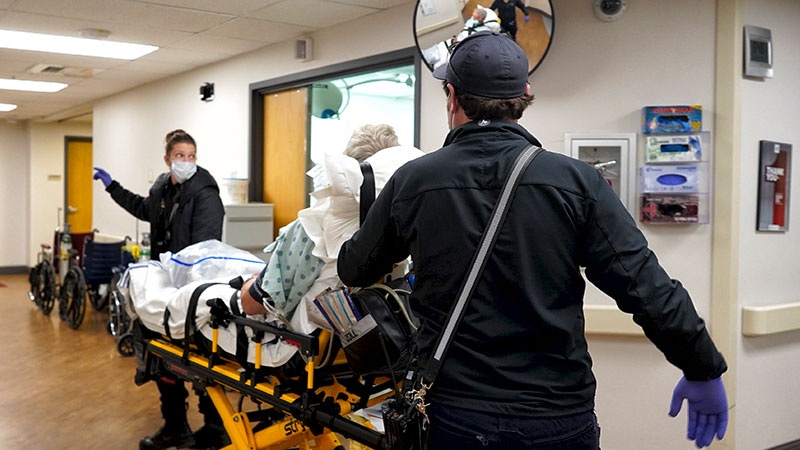Social media platforms are a useful way to reach parents of children with rheumatologic diseases for purposes of clinical research, researchers suggested.
Children of parents who responded to surveys distributed through social media were generally similar, in terms of diagnoses and other disease characteristics, to those enrolled in a large, formal registry of pediatric rheumatologic disease patients, according to Jonathan Hausmann, MD, of Boston Children’s Hospital, and colleagues.
One important, and in some ways encouraging exception, was that children with rare rheumatologic diseases were overrepresented in the social media group relative to registry patients. Whereas 70% of the 7,895 children in the registry, maintained by the Childhood Arthritis and Rheumatology Research Alliance (CARRA), had juvenile idiopathic arthritis, that was true of only 27% of the social media cohort, they stated in ACR Open Rheumatology.
On the flip side, some 19% of the social media group had autoinflammatory diagnoses, compared with 0.5% of CARRA patients. And 9% of the social media group had autoimmune encephalitis versus no one in the registry.
Age at onset and disease duration, as reported by the social media parents, were similar to those of CARRA patients.
The implication is that parents contacted through social media are accurate in describing their children’s illness — which, in turn, could make social media very productive for clinical research recruitment, especially for rare conditions, Hausmann and colleagues said.
Also, two-thirds of the 712 completed surveys derived from contacts made through Facebook, meaning it should be an especially attractive avenue for these approaches, the investigators said.
Most research on pediatric illness has had to rely on two stages of recruitment: first, to persuade clinicians to find and refer patients in their practices, and then to win over the parents to obtain their consent and participation.
While the FDA has told drugmakers that they need to conduct focused studies of their products in children, that has done little to overcome the challenge of finding the necessary participants. Parents are understandably reluctant to expose their children to unknown risks, particularly when their illnesses are not life-threatening, as is the case with most rheumatologic conditions.
Now, social media and the proliferation of online discussion and support groups offer a way to reach parents of affected children directly. When it comes to rare conditions, parents may actually be eager to make their children available, having reviewed the available literature on their own and discovered how little is really known, Hausmann and colleagues observed.
But the investigators noted that there has been some hesitation in utilizing social media to this end due to “concern about the validity of an online cohort of patients with self-reported diagnoses.” The current study was meant to examine the credibility of these parental reports, by comparing them to patients in a clinician-led registry whose records have been thoroughly vetted.
The social media survey was distributed during 2019 with assistance from the Patients, Advocates, and Rheumatology Teams Network for Research and Service (PARTNERS), whose members include the Arthritis Foundation, the Lupus Foundation of America, and the Cure Juvenile Myositis Foundation. The investigators also received help from other organizations devoted to a variety of other conditions, both in general and specific to pediatric forms. These groups in turn utilized their own online tools, including Facebook, Twitter, and Instagram, as well as direct emails to members.
Messages distributed in these ways briefly described the study and included a URL to the actual survey. When people clicked on the URL, it automatically recorded the platform where the URL appeared.
Just under 66% of respondents clicked from a Facebook page. Only a handful came via Twitter or Instagram. About 8% clicked from an organization’s web page, and some 20% had plugged the URL directly into a browser, making it unclear where they had seen it.
Overall, the social media group reported age at disease onset that was a mean 1.3 years older than for registry patients; the difference was statistically significant for some of the more common conditions, but overall, they were not especially important for purposes of clinical research, Hausmann and colleagues concluded.
Notably, the survey did not ask about parental willingness to have their children included in research studies, as the primary purpose was simply to establish the feasibility of using social media to engage with parents.
![author['full_name']](data:image/png;base64,R0lGODlhAQABAAD/ACwAAAAAAQABAAACADs=)
John Gever was Managing Editor from 2014 to 2021; he is now a regular contributor.
Disclosures
The study was funded by the Childhood Arthritis and Rheumatology Research Alliance and the Arthritis Foundation.
Hausmann disclosed support from, and/or relationships with, Rheumatology Research Foundation, Childhood Arthritis and Rheumatology Research Alliance, Novartis, Pfizer, and Biogen.
Co-authors disclosed support from, and/or relationships with, the Patient-Centered Outcomes Research Institute, Bristol Myers Squibb, the National Institute of Arthritis and Musculoskeletal and Skin Diseases, Childhood Arthritis and Rheumatology Research Alliance, Sobi, USB, and Sanofi.
Note: This article have been indexed to our site. We do not claim legitimacy, ownership or copyright of any of the content above. To see the article at original source Click Here



![author['full_name']](https://indexofnews.com/wp-content/uploads/sites/2/2022/03/localimages/johnGever_188.jpg)





